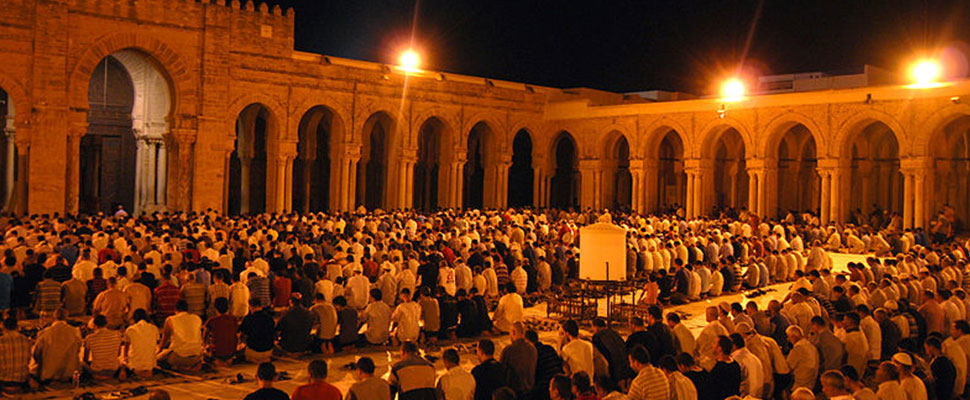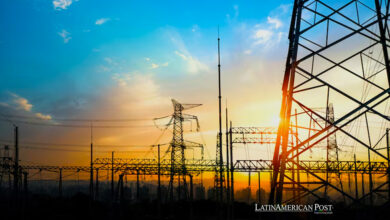Ramadan: how to celebrate a holy feast in times of tension?
The most important month of the Muslim calendar has just begun in the midst of civil wars, violence and political instability

May 16th was the first day of Ramadan, the most sacred feast of Islam. This consists of the faithful fasting from the moment the sun rises until it sets. This fasting not only contemplates the intake of food and drinks, it also promotes sexual abstinence. During this period, the sins of the people are purged through these privations, so it becomes a time of individual and collective renewal.
Leer en español: Ramadán: ¿cómo celebrar fiestas sagradas en tiempos de tensión?
However, despite the meaning of this sacred feast, in the Middle East things are far from being an environment conducive to religious celebrations. With the complex conflict in Syria, a bloody civil war in Yemen and violence following the transfer of the US embassy to Jerusalem, thousands of Muslims will have difficulty in celebrating Ramadan peacefully.
How to celebrate Ramadan in the midst of instability and violence?
In comparison to the way in which European Muslims, or those residing in that continent, live Ramadan; the faithful who live in unstable territories do not have it so easy. While in Europe or America they enjoy flexible working hours and can choose to adapt their fasting to their available hours of sun, in Yemen the subject of fasting is undoubtedly very problematic.
Since the outbreak of the war in that country, a little over three years ago, one of the most serious humanitarian catastrophes of recent times has been seen. In 2017, the United Nations said that Yemen could be brewing the greatest famine in history. This is because, thanks to a blockade imposed by Saudi Arabia, the country that leads the coalition of Arab countries fighting against Houthi rebels and Al Qaeda cells, at the end of last year the food shortage in Yemen could have caused a famine on a large scale.
The international pressure of some of the allies of Saudi Arabia (the United States and France, specifically) lifted the blockade and saved countless lives. In any case, in a war the circulation of provisions is not the same as in times of peace. According to the AFP news agency, in Yemen there are large portions of the territory controlled by Al Qaeda, others by the rebels and others by the deposed government. So getting food, medicines and other supplies to the citizens does not have to be an easy task.
This for the Muslims who are caught in crossfire can mean a real difficulty in breaking up the fast, or to maintain such a discipline for a whole month.
According to the media Efe about Ramadan, experiencing very strong emotions during Ramadan is not well seen for its practice. So how could the Palestinian protesters protesting the transfer of the US embassy to Jerusalem be excused? Is the state of protest contrary to the requirements of Ramadan? According to what Efe says it depends, for there are Islamic councils around the world that recommend some flexibility for the celebration of this festival under special conditions. But the point is another, and is that there are Muslims who have to interrupt their religious cycles because they are in a situation of political instability.
An example of this is another of the pillars of Ramadan: prayer. Before breaking the fast, the faithful have to pray oriented to Mecca, one of the most important cities for the Islamic faith. However, to achieve such a task, a space of tranquility is needed to reach a state "of divine consciousness".
If a faithful person lives in war zones such as Yemen or Syria, the search for this space of peace and reflection is almost impossible to achieve. According to AFP, only during the Yemeni war, 100 thousand people have had to leave their homes while escaping violence. In Syria, they are estimated to be a little over 6 million.
In short, those who are victims of conflicts in the Middle East can not fully celebrate their most sacred month. Whether because of the lack of food to break the fast, or because they do not live a normal life and if one has to move to find a safe place to live, these people do not have the right to practice their faith fully. This is another sign of political degradation in that region, where religion is one of the central elements of tensions.
Latin American Post | Iván Parada Hernández
Copy edited by Diana Rojas





